AURELIUS 2020
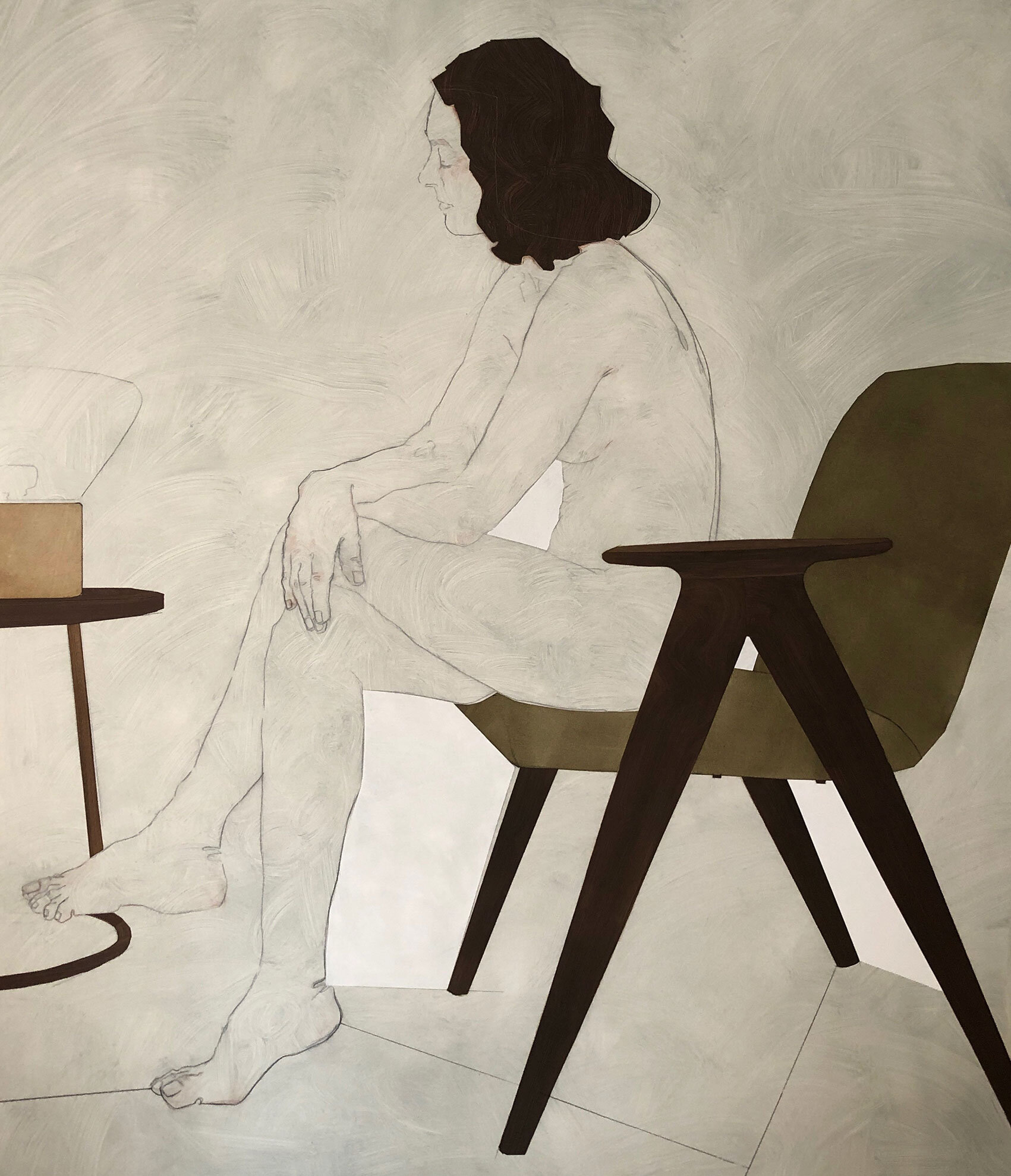

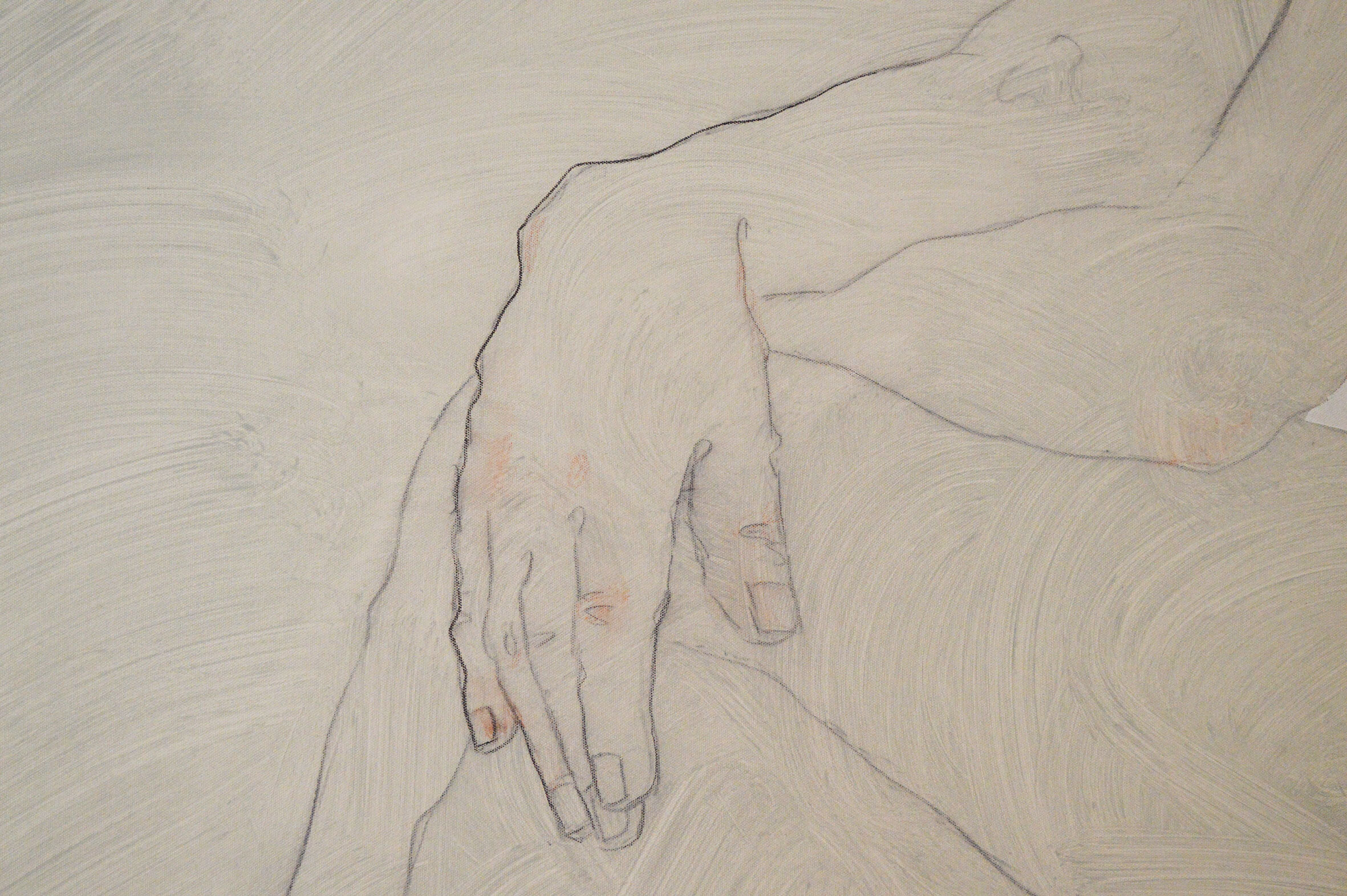
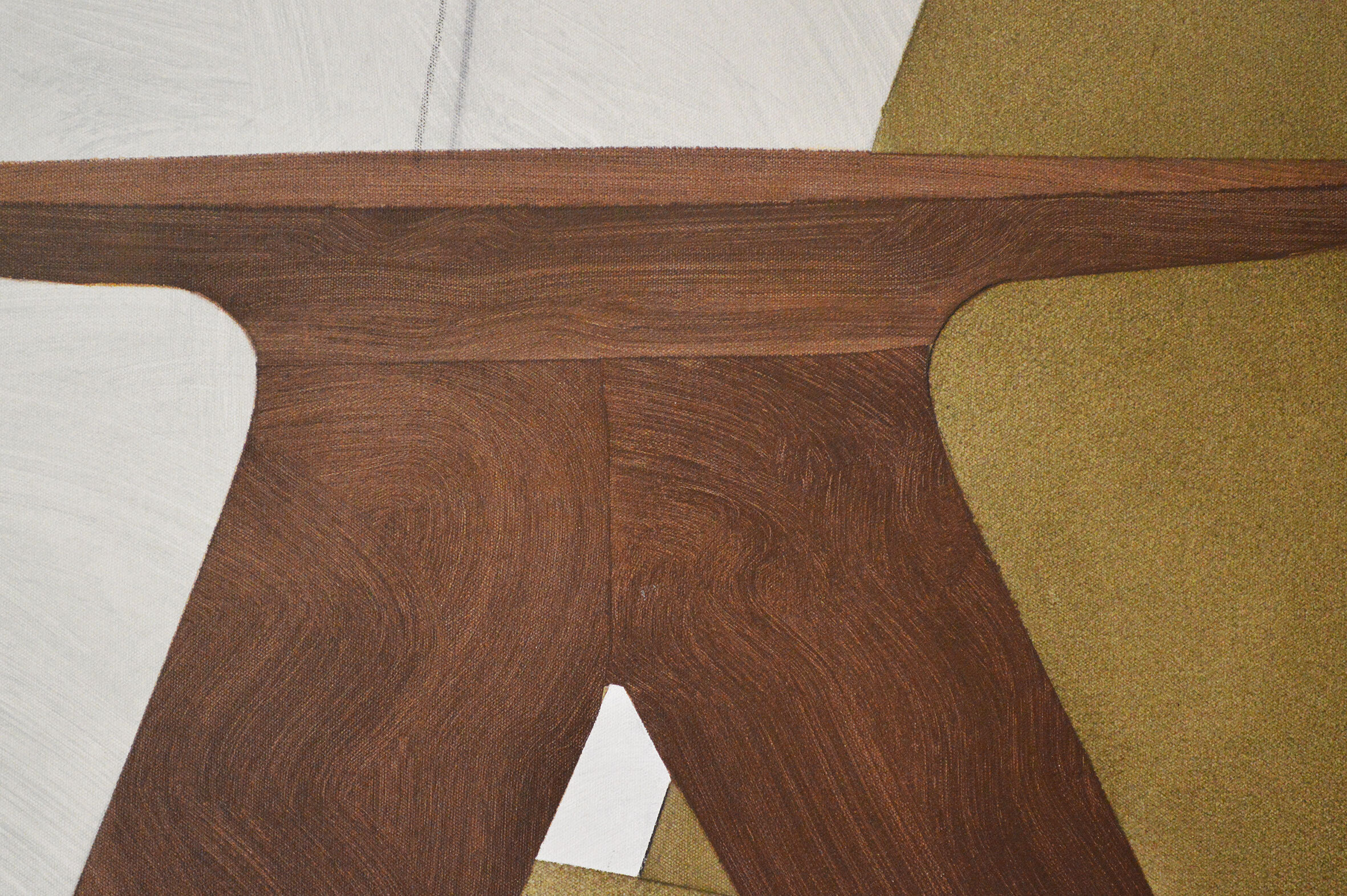

“AURELIUS 145 x 170 cm
“Everything we hear is an opinion, not a fact. Everything we see is a perspective, not the truth.” Marcus Aurelius (161 to 180 A.D.) was a Roman emperor. He was the author of “Meditations”, which was never really meant for public eyes, but rather a personal journal on his private thoughts, his own advice to himself on how to make good on the responsibilities and obligations of his position. Aurelius was trained in Stoic philosophy and was said to practice spiritual exercises on a daily basis, as a means to remain humble, patient, empathetic, generous, and strong in the face of adverse events. Aurelius wrote extensively on how to deal with change, especially undesirable change. He stated one had to live according to nature by accepting its course, as change was necessary for life. “The impediment to action advances action. What stands in the way becomes the way.”
Being a Stoic, he strongly believed that the only way to find the path to ‘eudaimonia’ (happiness, or blessedness) was to accept the moment as it presents itself, by not allowing oneself to be controlled by the desire for pleasure or fear of pain. This was achieved by using one’s mind to understand the world, by working together and treating others fairly and justly. The Stoics believed that certain destructive emotions resulted from errors of judgment, and they believed people should aim to maintain a will (prohairesis). Because of this, the Stoics thought the best indication of an individual’s philosophy was not what a person said, but how a person behaved. One of the most important lessons we can learn from Aurelius are his thoughts on the power of our minds and the ability to choose how we perceive events and how we act upon them. “You have power over your mind – not outside events. Realize this, and you will find strength.”
The capacity to control ones thoughts will reflect the quality of their thoughts which in turn determines their actions. “The soul becomes dyed with the colour of its thoughts”
- VIADUCT Armchair: Libera - Designed by Jon Gasca / Manufactured by STUA”
PLATO
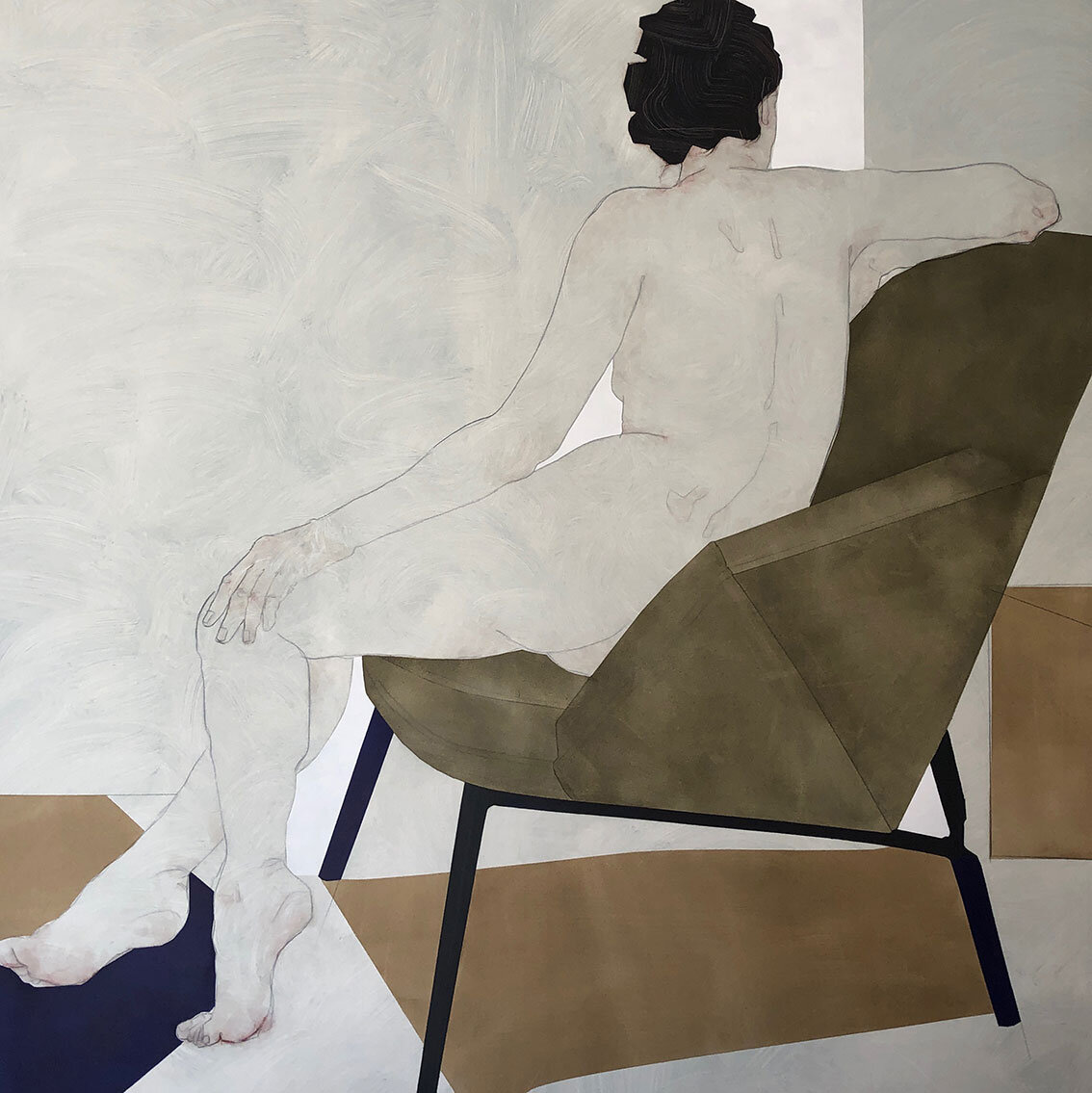


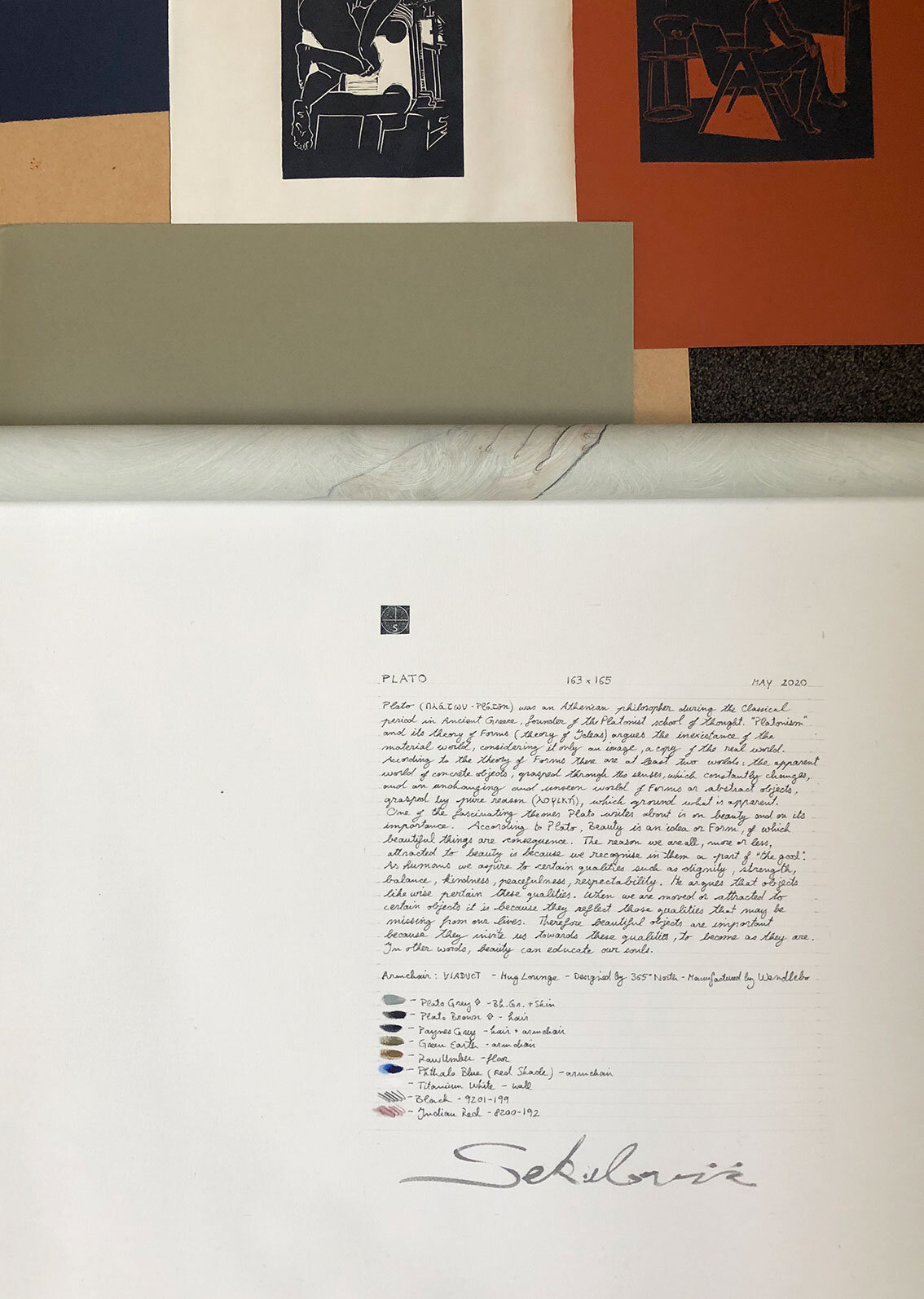
“PLATO - 163 x 165 cm
Plato (Πλάτων - Plátōn) was an Athenian philosopher during the Classical period in Ancient Greece, founder of the Platonist school of thought. “Platonism” and its theory of Forms (theory of Ideas) argues the inexistance of the material world, considering it only an image, a copy of the real world. According to the theory of Forms there are at least two worlds: the apparent world of concrete objects, grasped through the senses, which constantly changes, and an unchanging and unseen world of Forms or abstract objects, grasped by pure reason (λογική), which ground what is apparent. One of the fascinating themes Plato writes about is on beauty and on its importance. According to Plato, Beauty is an idea or Form, of which beautiful things are consequence. The reason we are all, more or less, attracted to beauty is because we recognise in them a part of ‘the good’. As humans we aspire to certain qualities such as dignity, strength, balance, kindness, peacefulness, respectability. He argues that object like wise pertain these qualities. When we are moved or attracted to certain objects it is because they reflect those qualities that may be missing from our lives. Therefore beautiful objects are important because they invite us towards these qualities, to become as they are. In other words, beauty can educate our souls.
VIADUCT Armchair: Hug Lounge - Designed by 365 North / Manufactured by Wendlebo”
DUM SPIRO
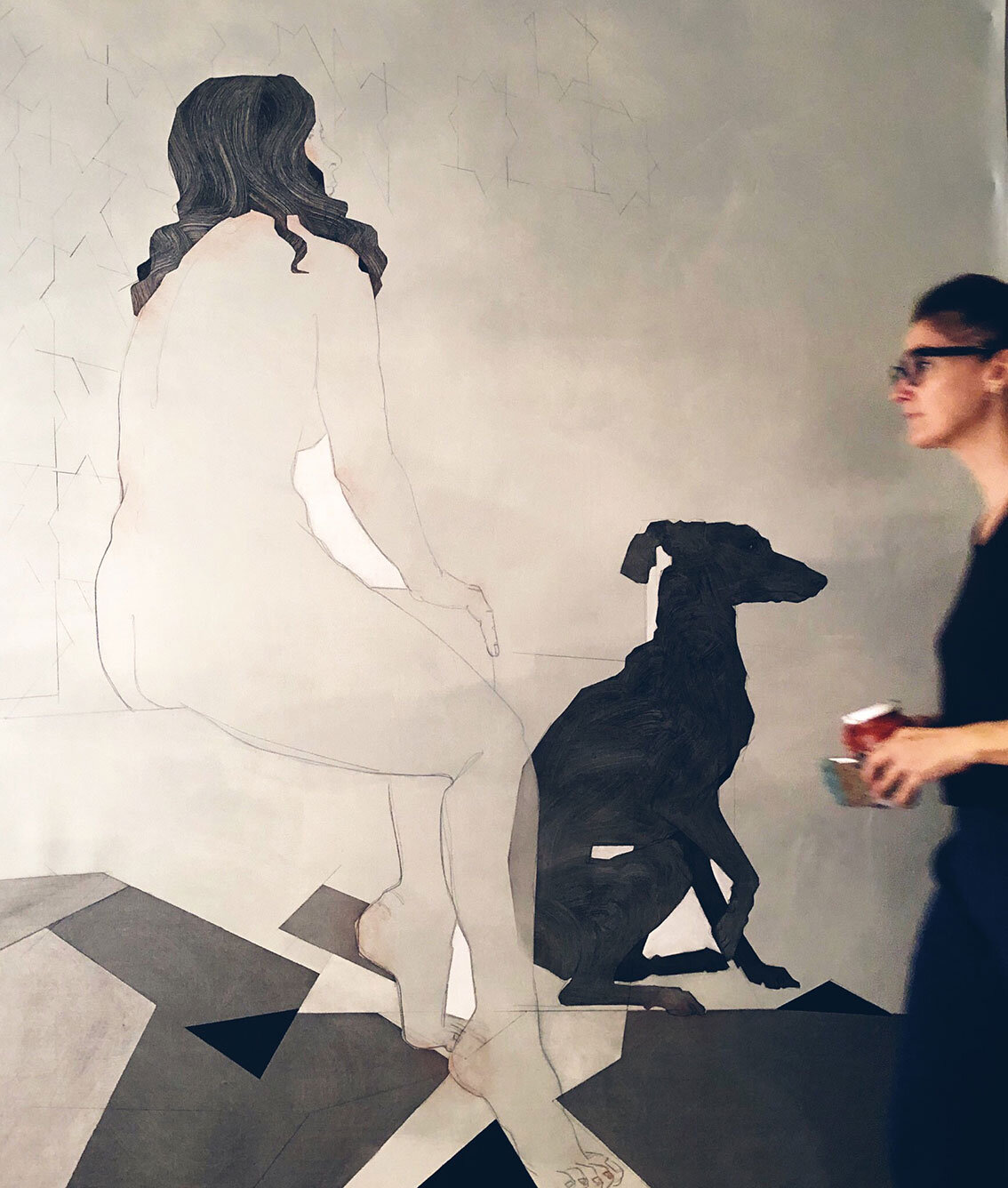
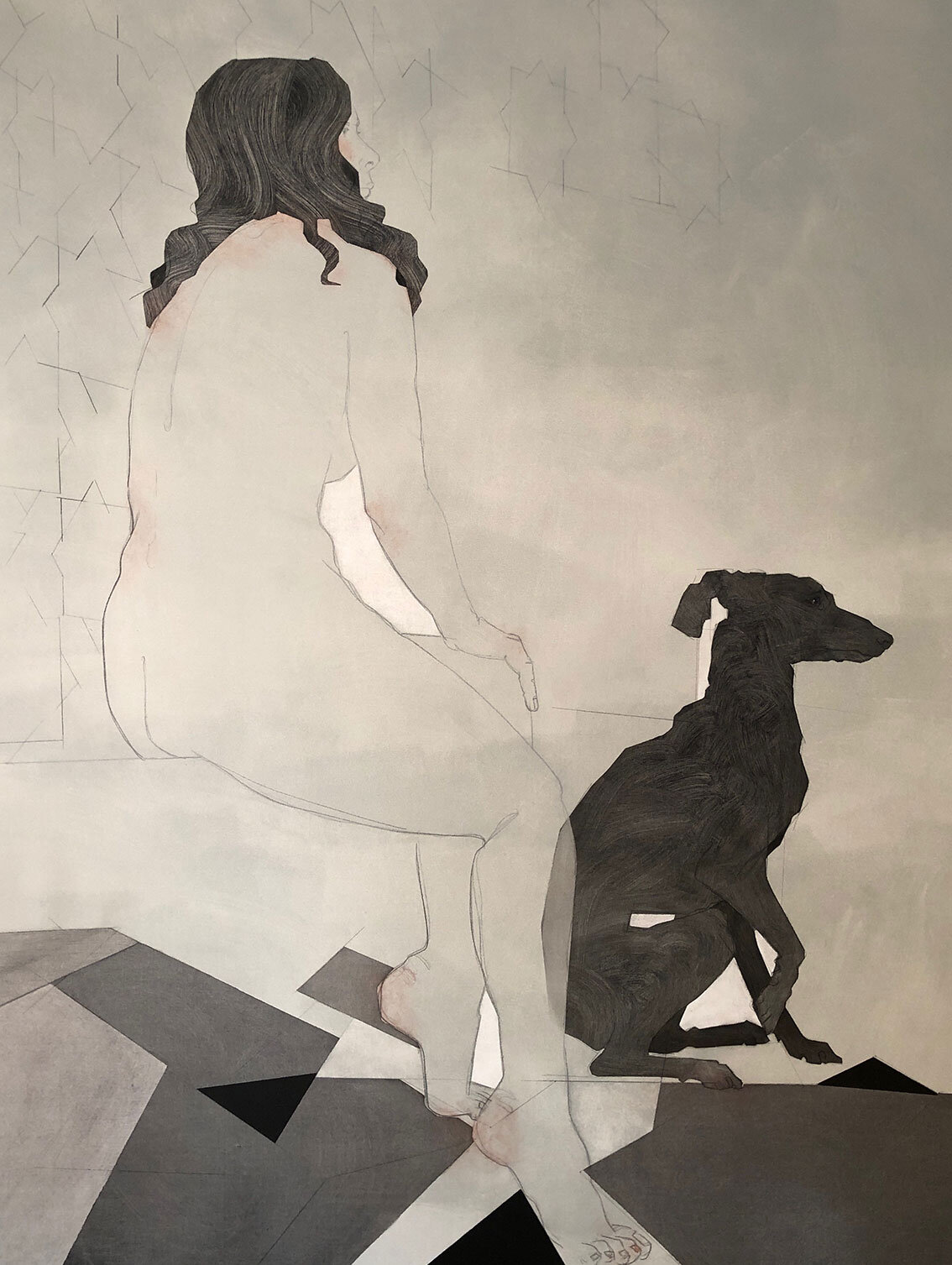

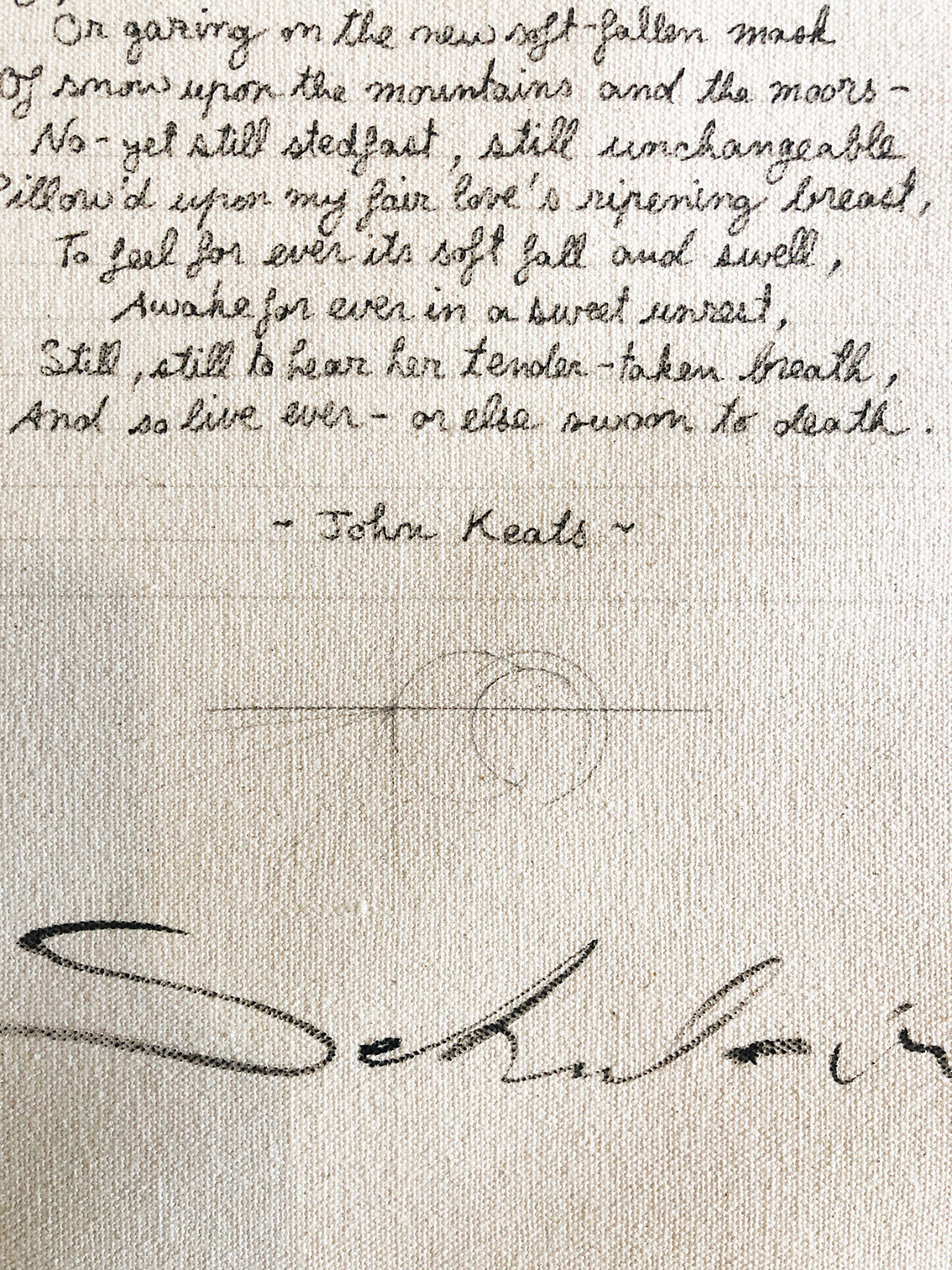
“DUM SPIRO - 140 x 185 cm
’Dum spiro spero’ means “While I breathe, I hope” in Latin and is a modern paraphrase of ideas that have survived from the ancient writings of Theocritus and Cicero.
POEM: “Bright star, would I were stedfast as thou art” by JOHN KEATS”
AD INFINITUM
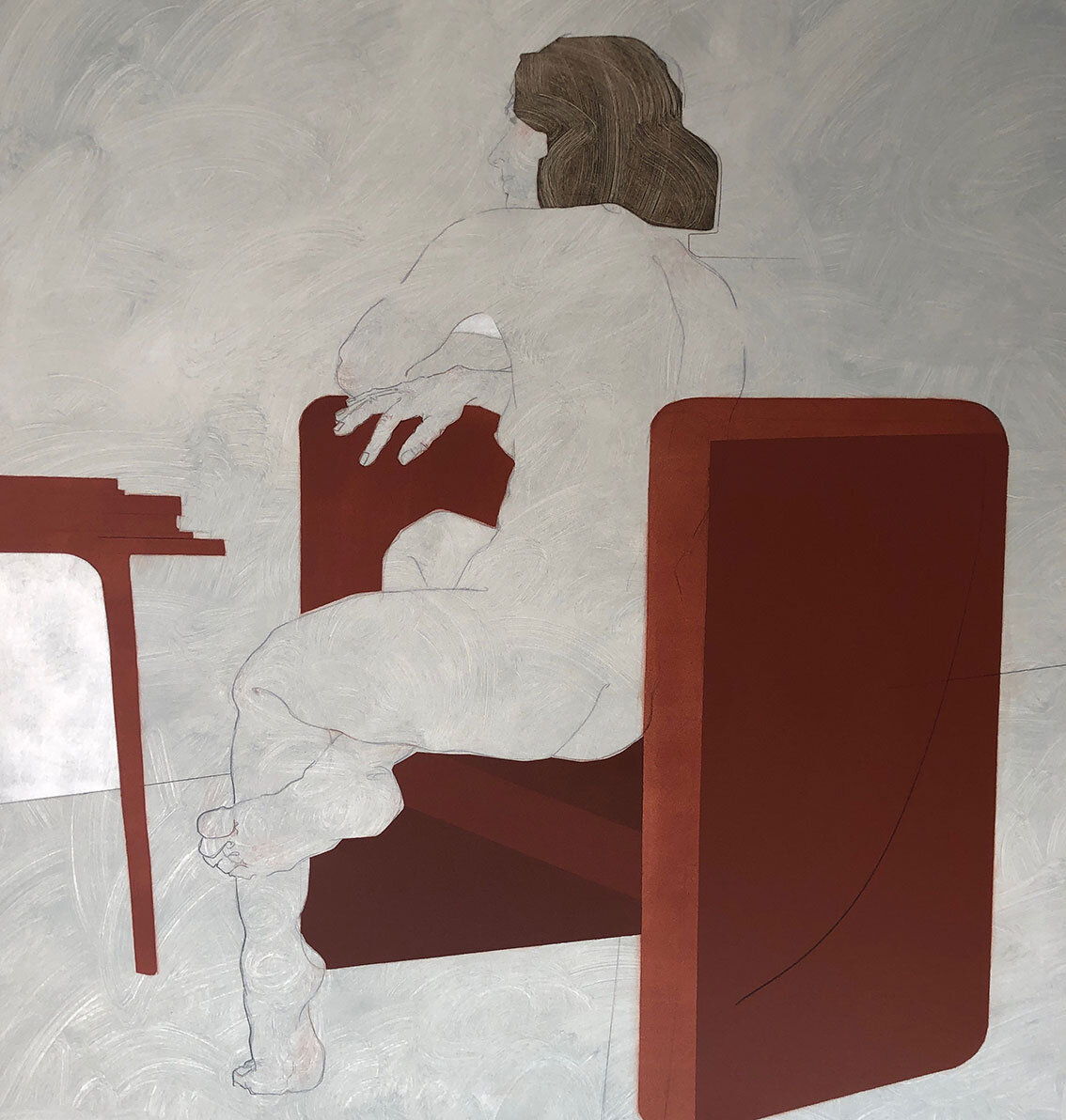
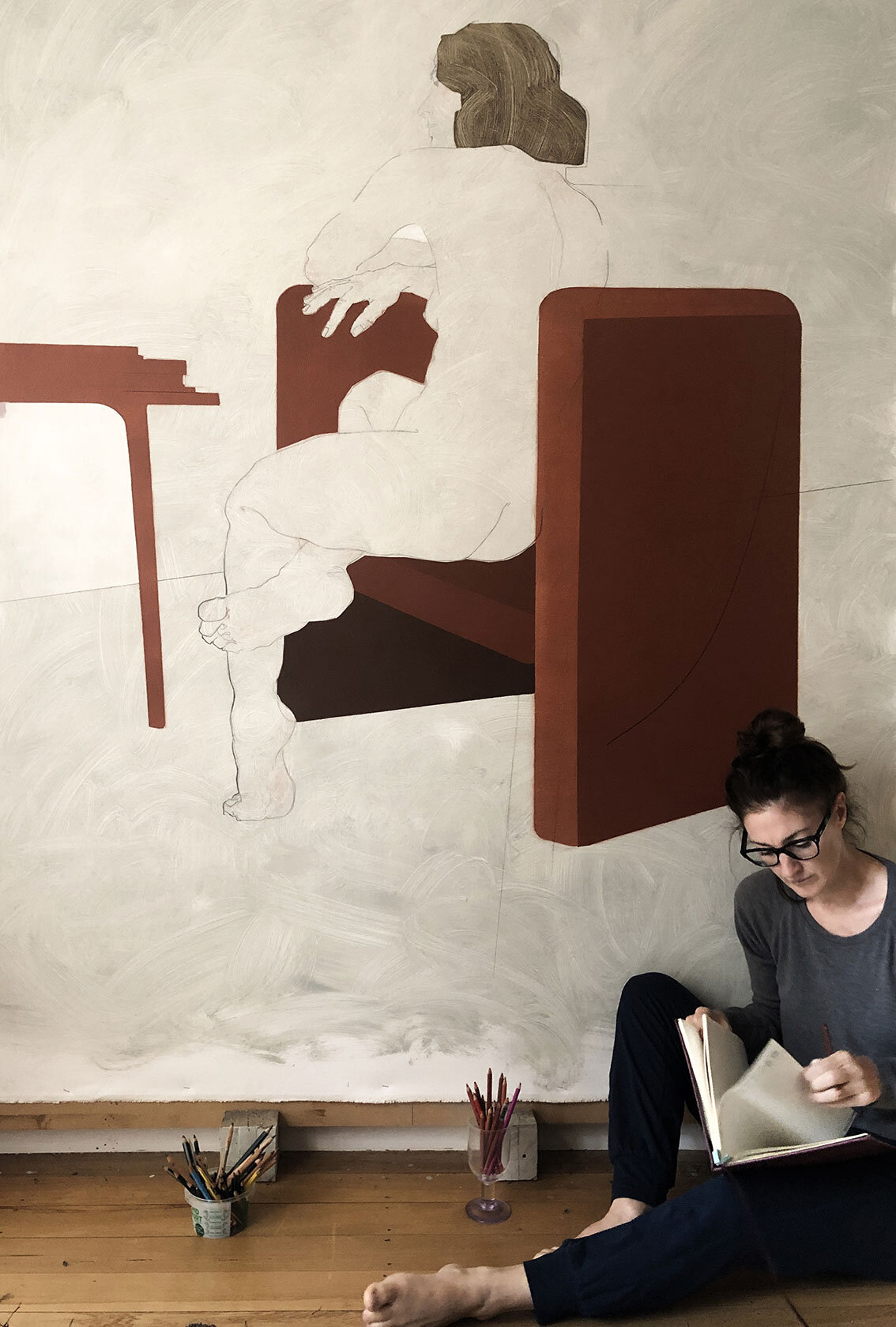

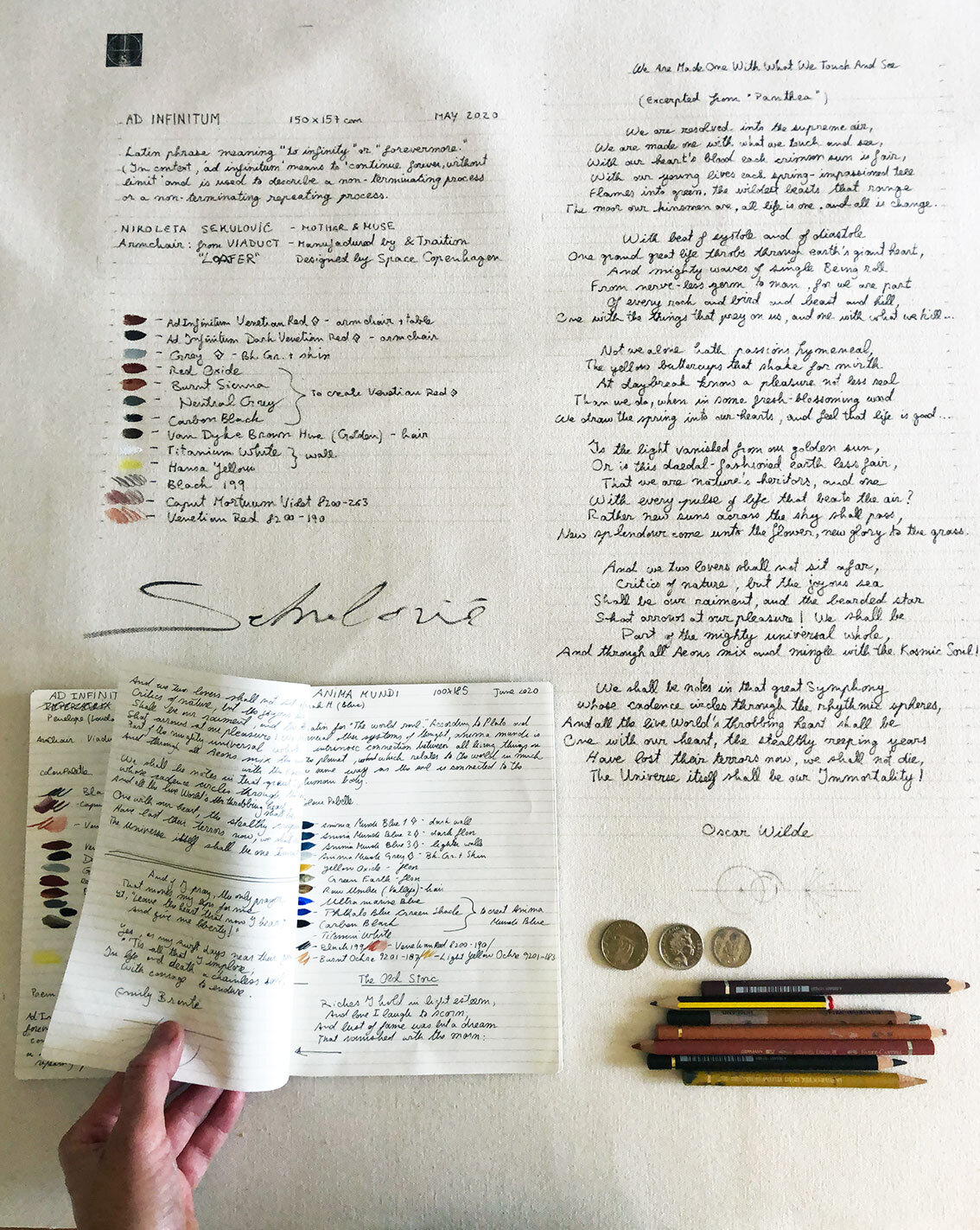
“AD INFINITUM 150 x 157 cm
Latin phrase meaning “to infinity” or “forevermore”.
In context, ‘ad infinitum’ means to “continue forever, without limit” and is used to describe a non-terminating process or a non-terminating repeating process.
VIADUCT armchair: Loafer - Designed by Space Copenhagen / Manufactured by & Traition
POEM: ‘We Are Made One with What We Touch and See’ Excerpted from “Panthea” by OSCAR WILD”
DUM VIVIMUS
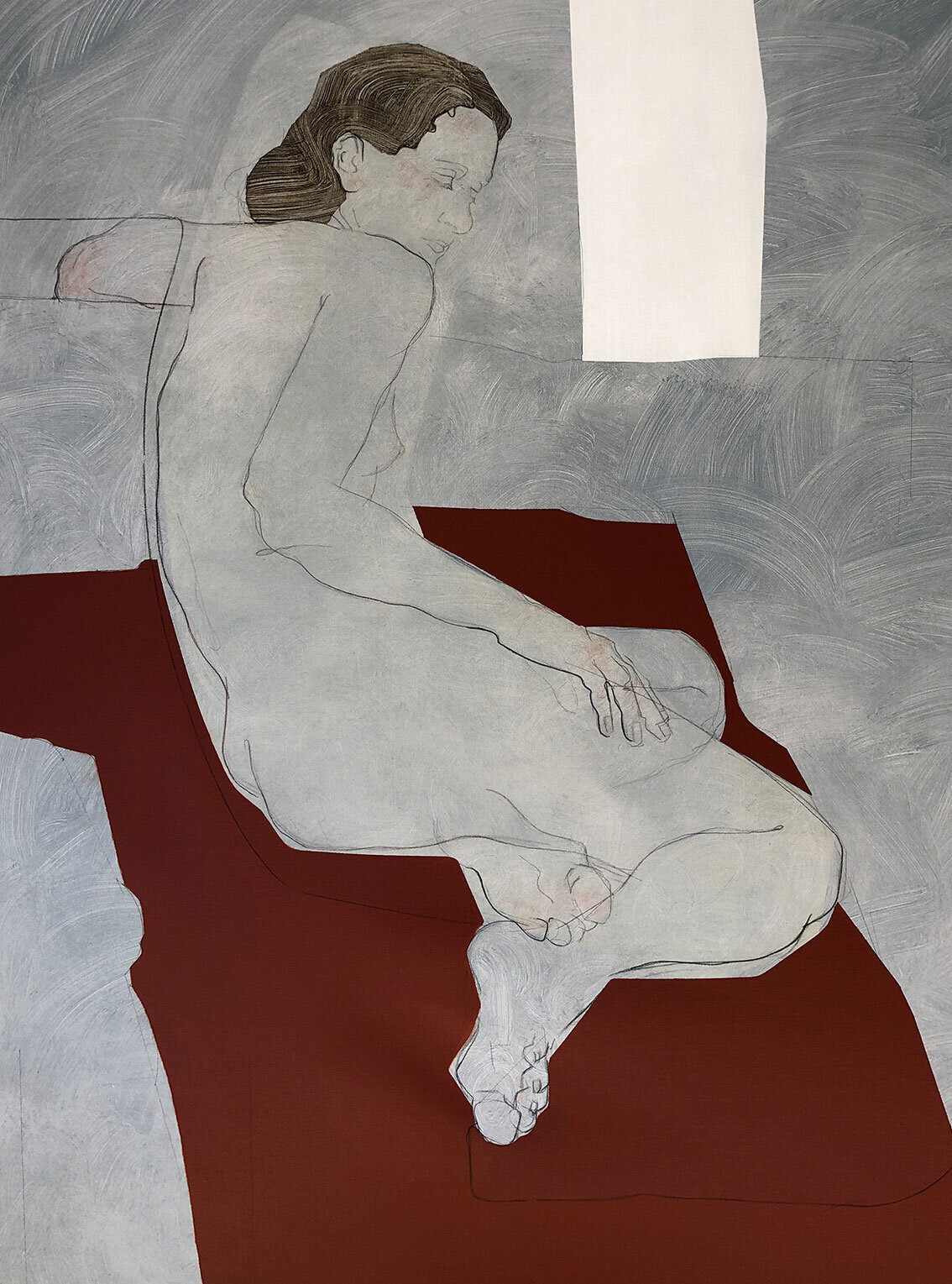
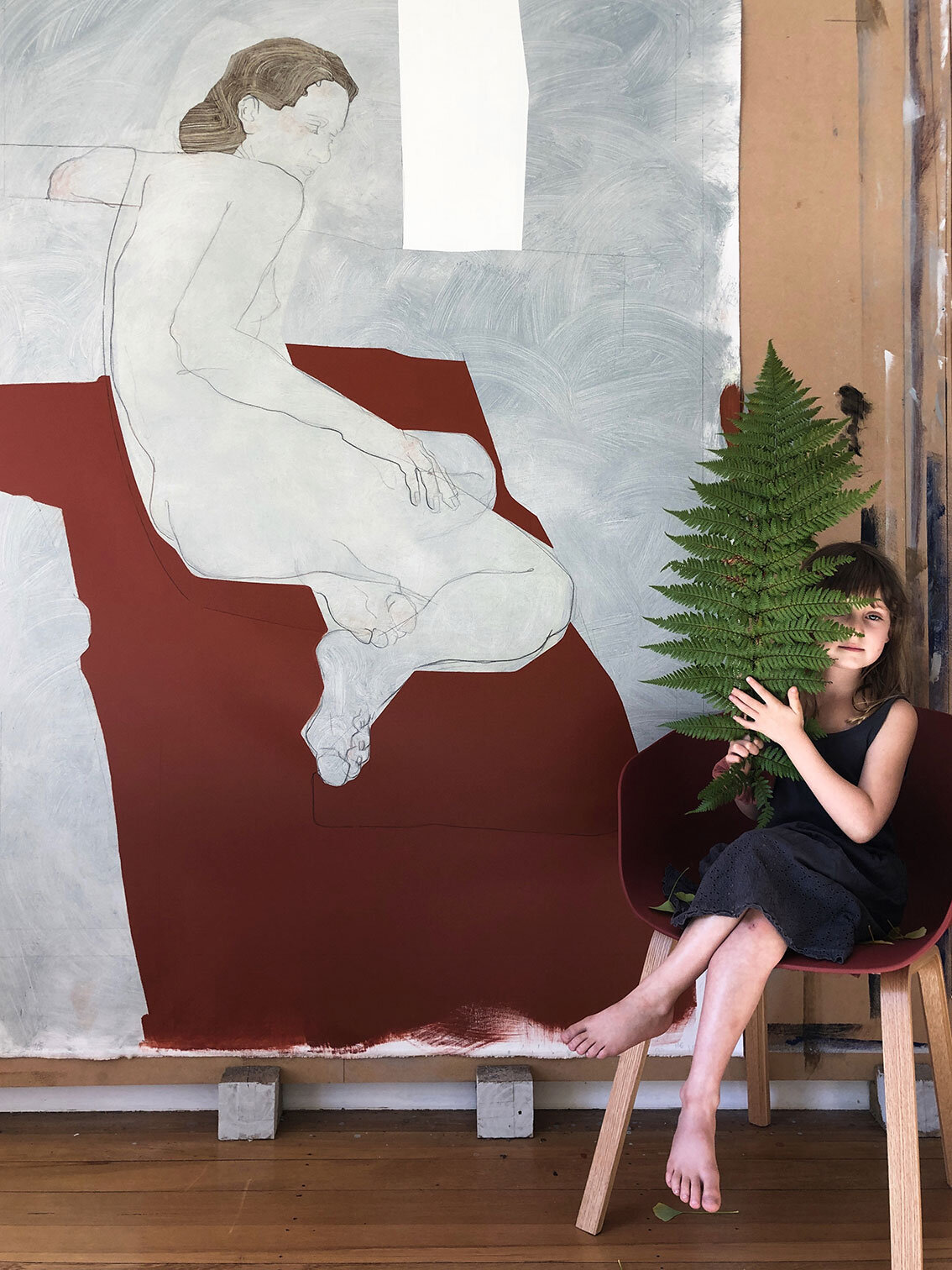
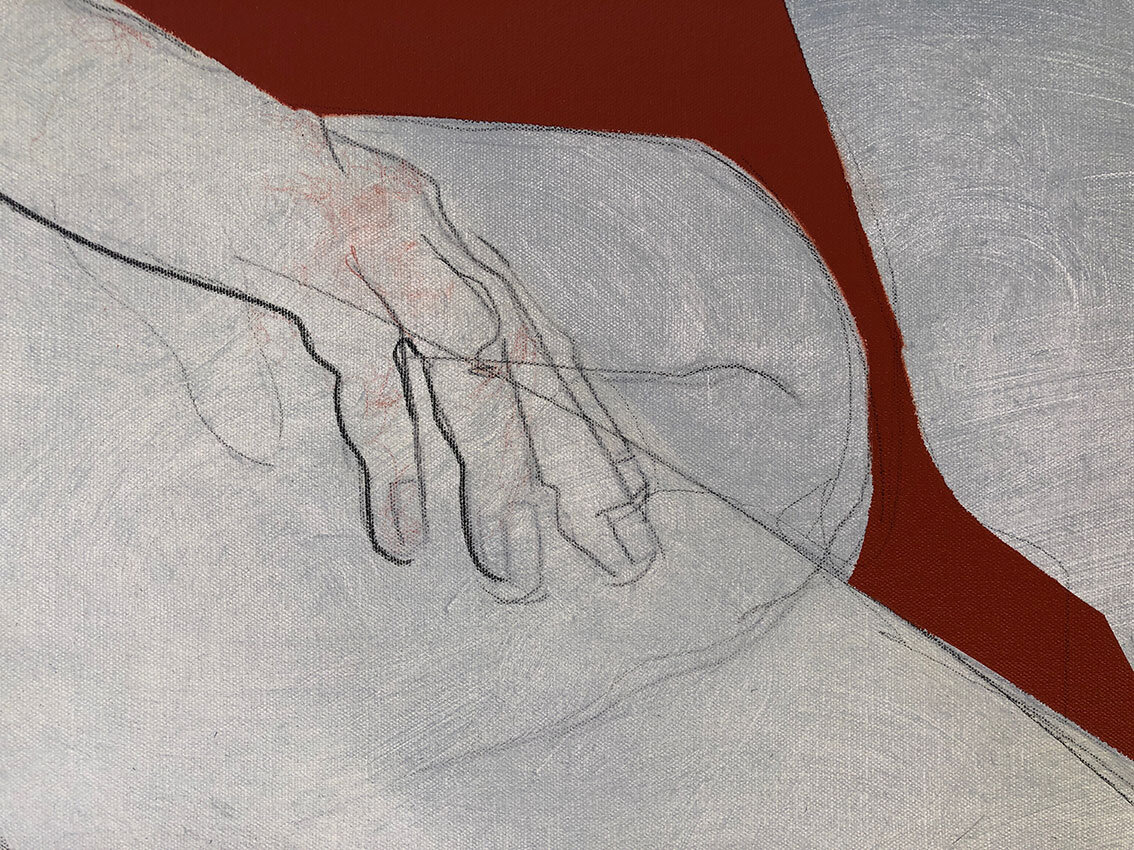
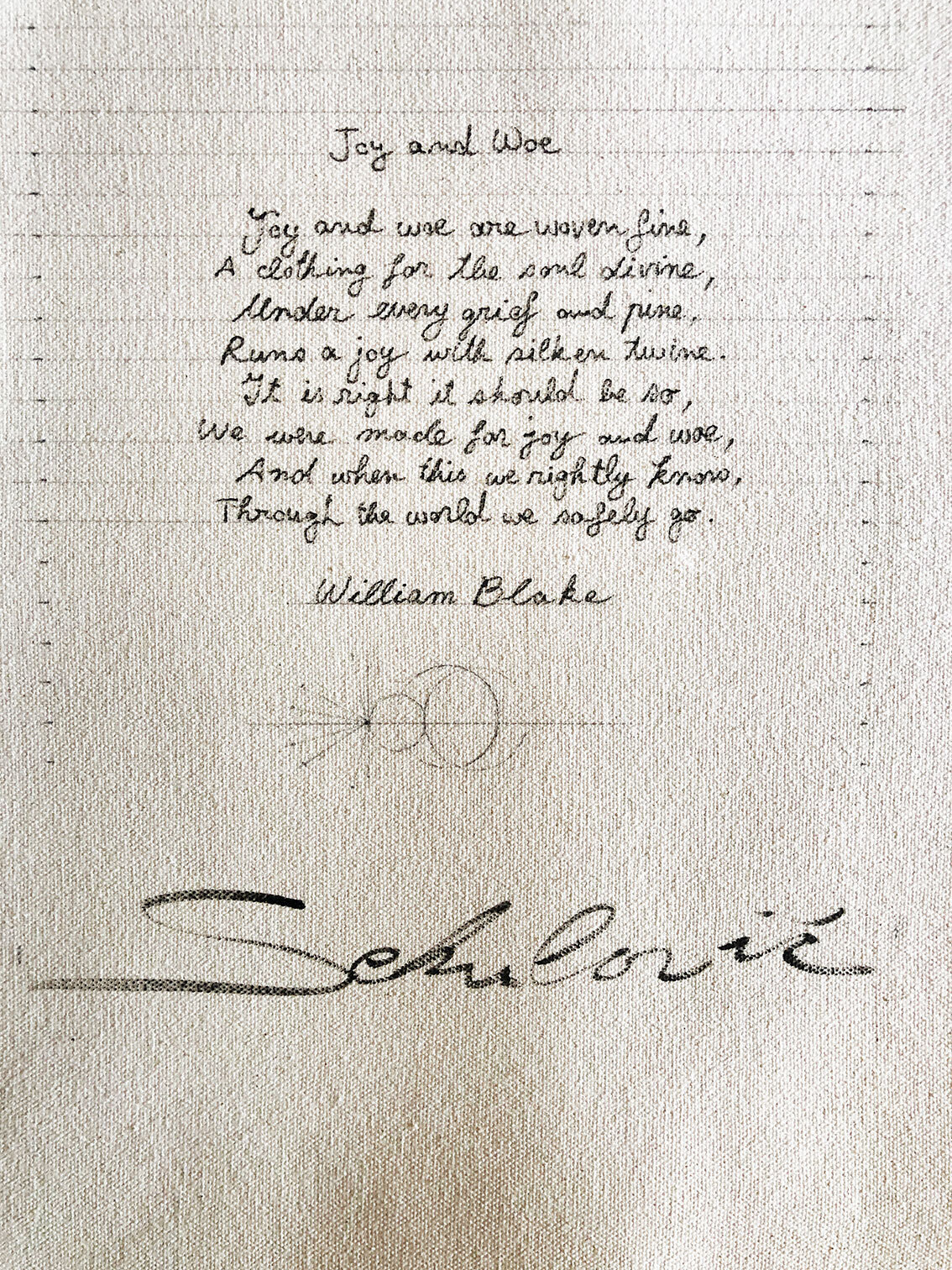
“DUM VIVIMUS 115 x 165 cm
“Dum vivimus vivamus” is a Latin phrase that means “While we live, let us live.” It is often taken to be an Epicurean declaration.
POEM: ‘Joy and Woe’ by WILLIAM BLAKE”
ASPASIA OF MILETUS
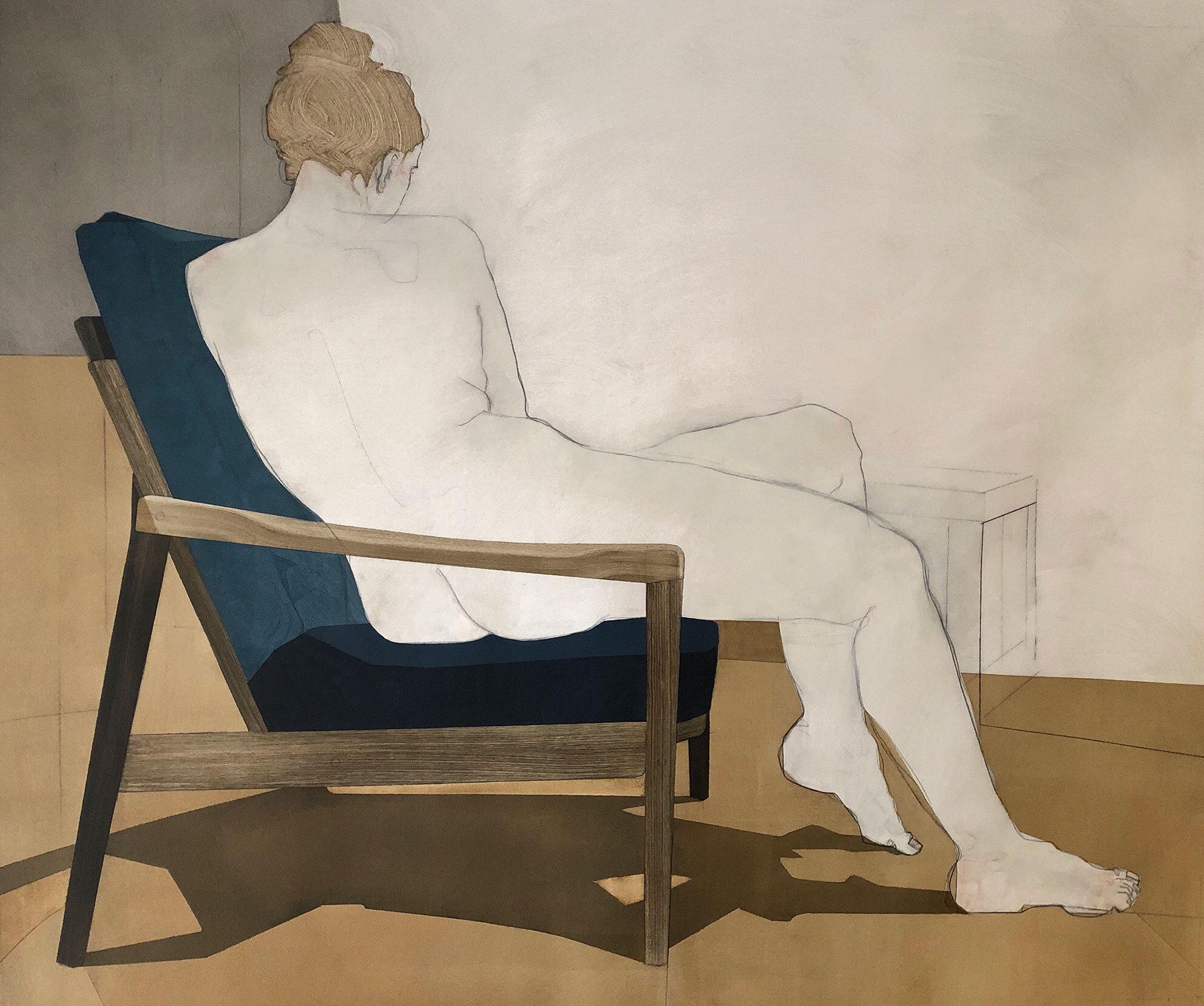
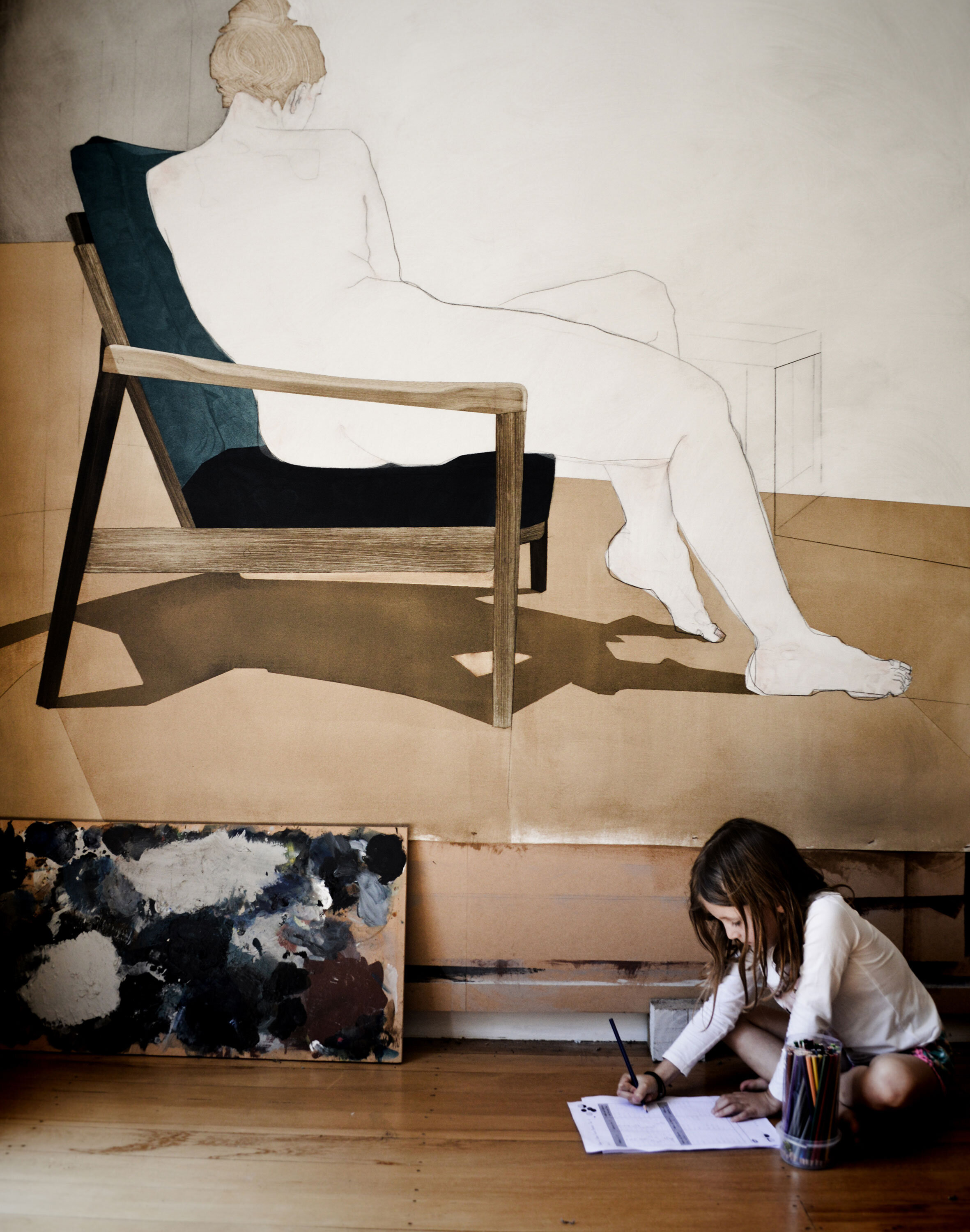

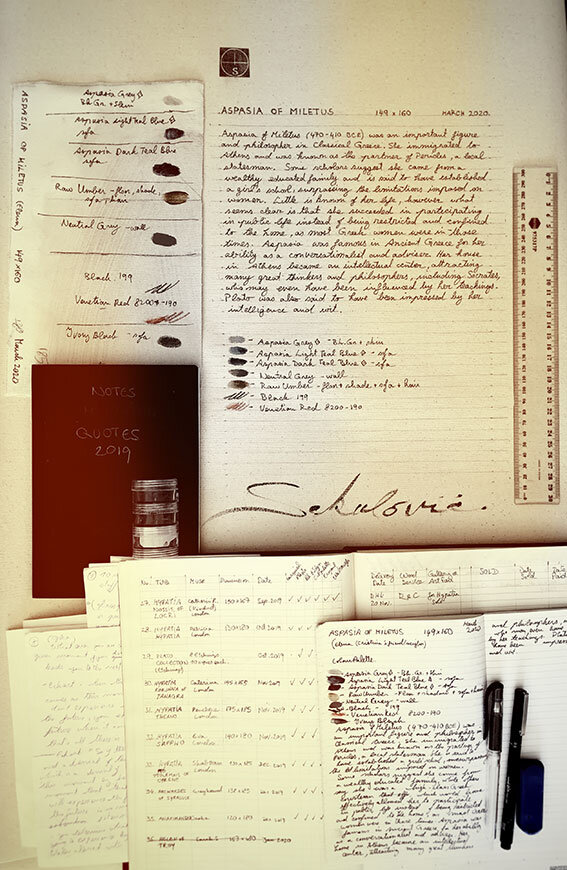
“ASPASIA OF MILETUS - 149 x 160 cm
Aspasia of Miletus (470-410 BCE) was an important figure and philosopher in Classical Greece. She immigrated to Athens and was known as the partner of Pericles, a local statesman. Some scholars suggest she came from a wealthy educated family and is said to have established a girls’ school, surpassing the limitations imposed on women. Little is known of her life, however what seems clear is that she succeeded in participating in public life instead of being restricted and confined to the home, as most Greek women were in those times. Aspasia was famous in Ancient Greece for her ability as a conversationalist and adviser. Her house in Athens became an intellectual center, attracting many great thinkers and philosophers, including Socrates, who may even have been influenced by her teachings. Plato was also said to have been impressed by her intelligence and wit.”
ANIMA MUNDI
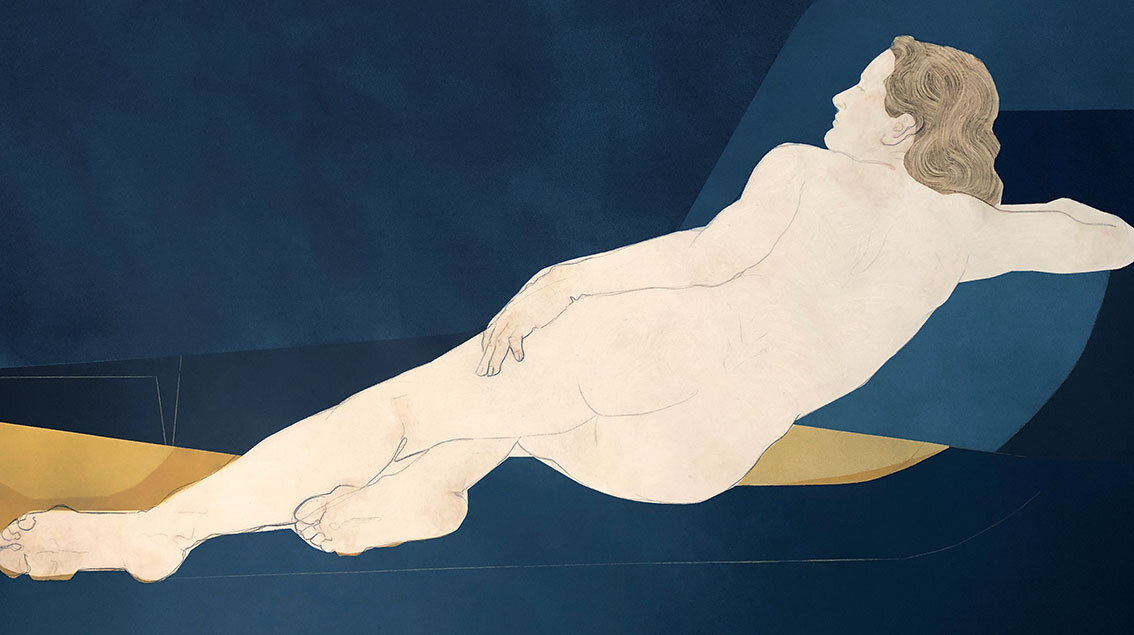
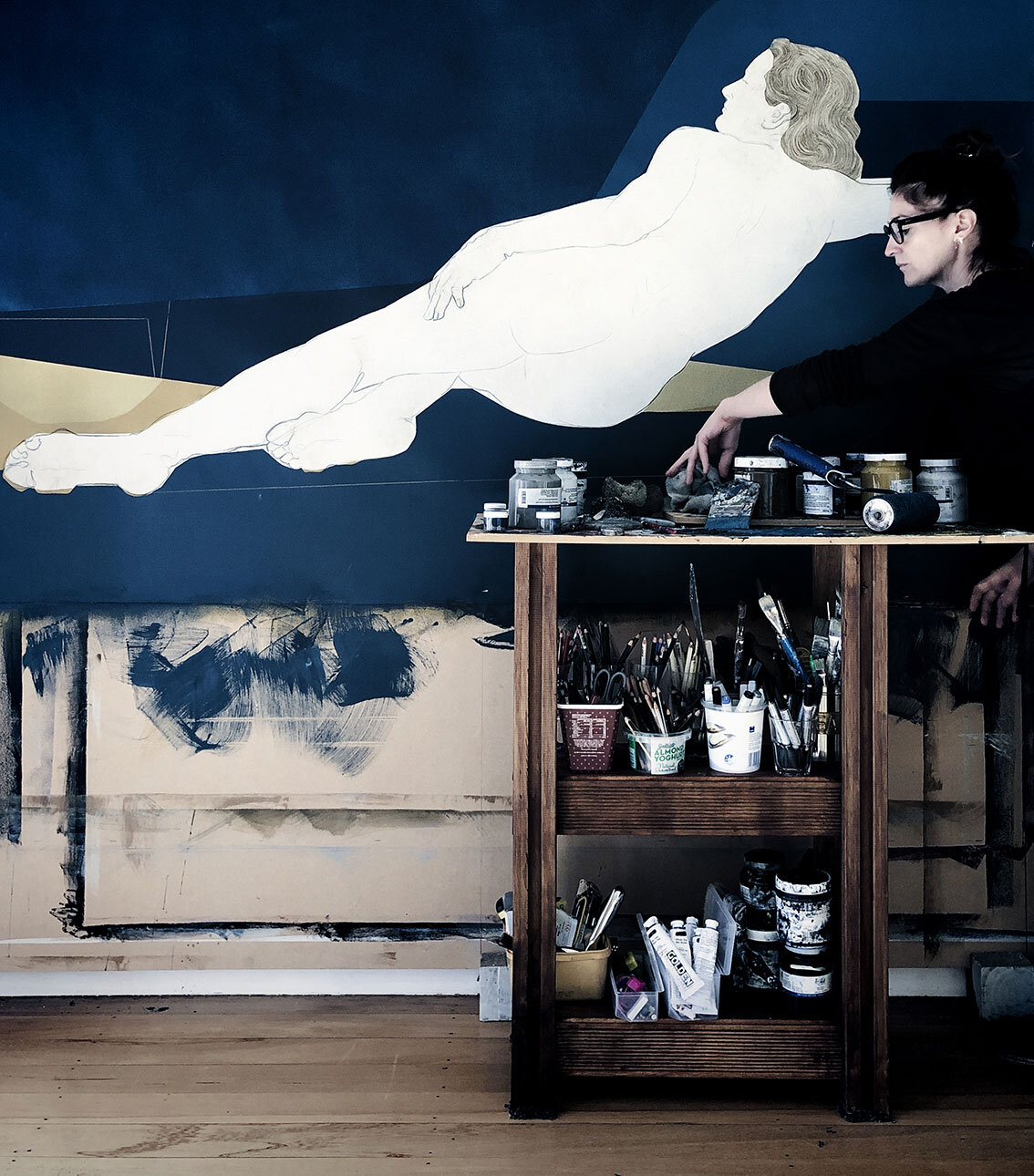
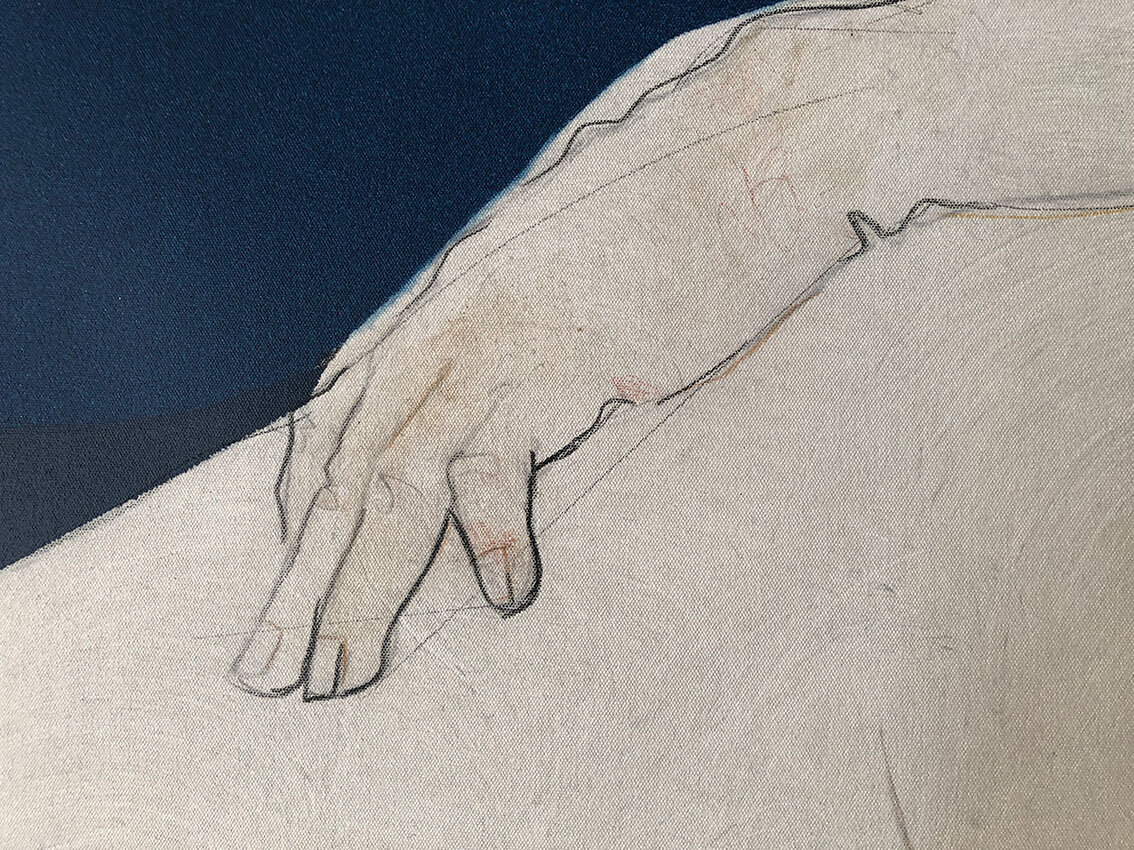
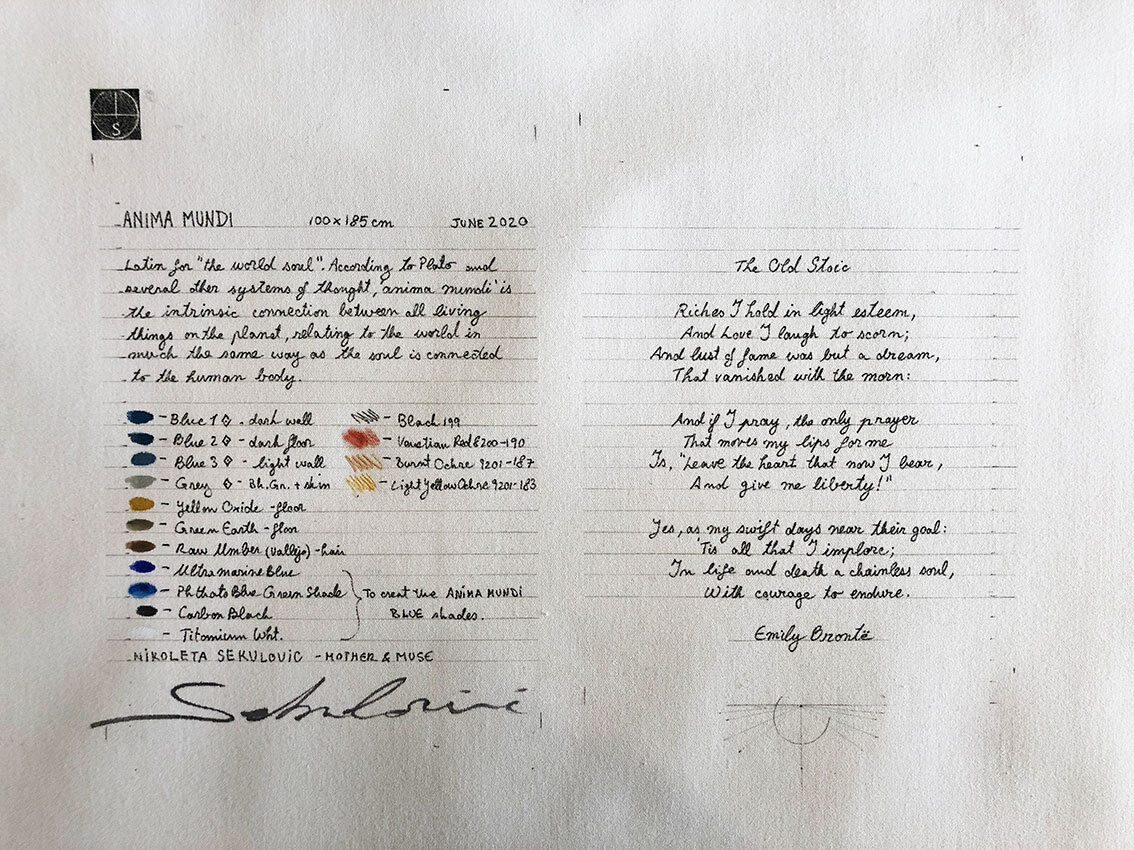
“ANIMA MUNDI 100 x 185 cm
Latin for “The world soul”. According to Plato and several other systems of thought, anima mundi is the intrinsic connection between all living things on the planet, relating to the world in much the same way as the soul is connected to the human body.
POEM: ‘The Old Stoic’ by EMILY BRONTE”
